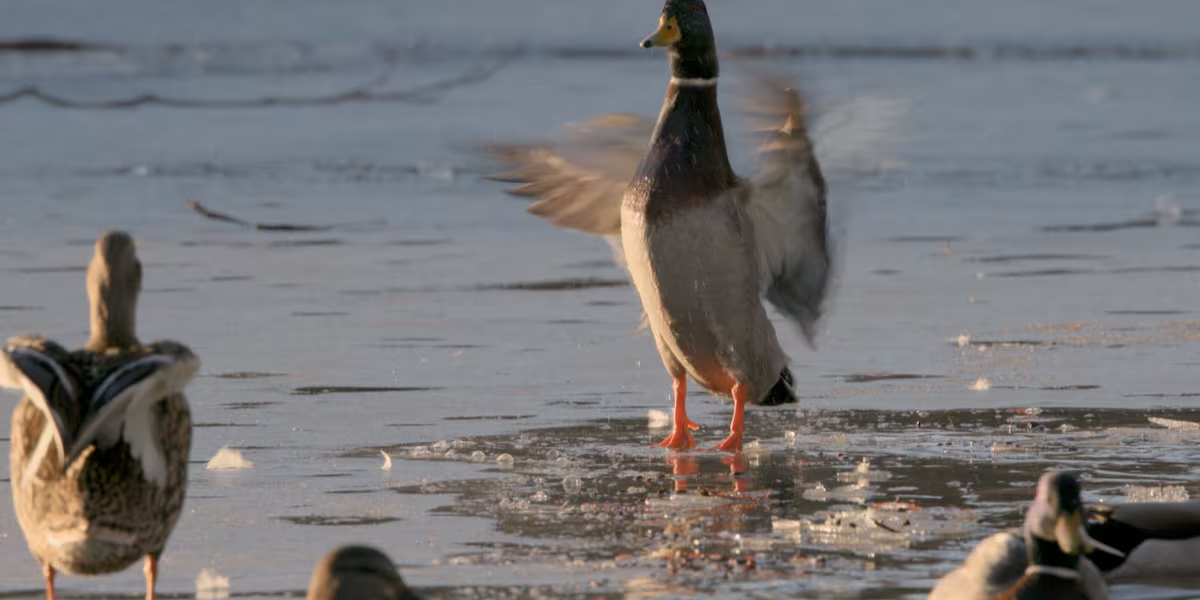JEROME, Idaho (KMVT/KSVT) — The Idaho Department of Fish and Game reported a mass die-off of birds in Idaho due to bird flu.
It happened in South Western Idaho, near the Snake River, and thousands of snow geese died.
Mike McDonald, the Regional Wildlife Manager for Idaho Fish and Game, said the agency hasn’t seen anything of the magnitude of the geese.
“I will also tell you that most of the geese that they’re dealing with, picking up, and removing from the landscape are juvenal geese, presumably geese that do not have any natural antibodies to this virus,” McDonald said.
McDonald said that while the Fish and Game has received calls locally about dead birds, the deaths are not necessarily tied to the bird flu. The death could be attributed to what the bird ate or to running into a window.
However, if you suspect a bird in the wild may be infected, it is essential to recognize the signs of bird flu.
“The birds going to be lethargic, kind of unaware,” McDonald said. “You approach it, it doesn’t flee, it doesn’t fly, doesn’t run.”
McDonald cautioned that wild birds can be without symptoms, carrying the virus but not showing any symptoms.
He added that it’s important to take precautions to prevent the virus from spreading, especially if you are a hunter. This can include wearing a mask and gloves while cleaning your kill.
“If you happen to be a waterfowl hunter that has domestic fowl at home, do your processing off site,” McDonald said. “Double bag it all, throw it away, throw away the gloves, wash yourself up before you then interact with your domestic fowl.”
Dr. Scott Leibsle, the State Veterinarian with the Idaho Department of Agriculture, said cases involving domesticated birds like chickens are rising in Idaho, with at least four detections in the last two weeks.
He mentioned that during this time, the virus spreads due to birds migrating. He pointed out that owners need to exercise precautions as the avian flu can quickly kill large chickens and turkeys overnight if exposed to it, as their bodies aren’t as strong enough to deal with the virus as wildfowls.
Limiting contact with wild birds and practicing healthy biosecurity measures is an easy way to prevent the spread.
“So that’s as easy as washing your hands, scrubbing your boots after you come in contact with your own birds,” Leibsle said. “I would also recommend they have dedicated farm clothes, so don’t wear your street clothes to interact with the birds and don’t take your farm clothes off the property.”
Leibsle recommended that if you get new birds, you isolate them from the rest of the birds for a couple weeks as a precaution. He added that just because you find a dead chicken doesn’t mean it’s Avian Flu.
During the cold, chickens tend to die. However, if you find a lot of dead chickens or other domestic animals or suspect it, call the Idaho Department of Agriculture at (208) 332-8500.
You can also fill out an online form as well here.
The Department of Agriculture will come by and clean up dead birds for you if it is influenza, free of charge. They recommend not touching any birds or throwing them away, as they could still spread even in the landfill, and birds come to the landfill.
If you suspect any wild birds have avian flu, contact the Idaho Department of Fish and Game to report it. You can call them at (208) 334-3700.
Copyright 2024 KMVT. All rights reserved.



